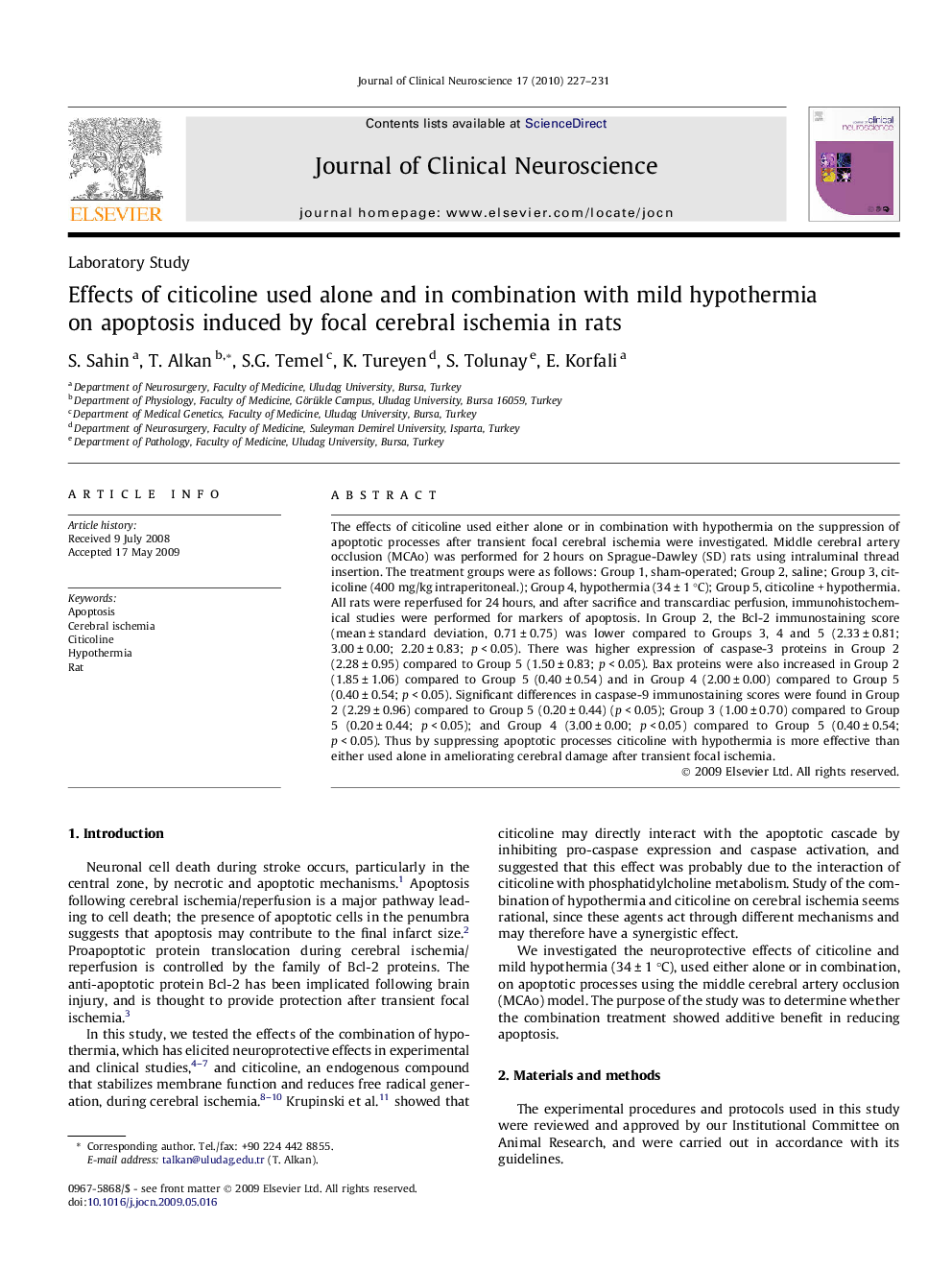| Article ID | Journal | Published Year | Pages | File Type |
|---|---|---|---|---|
| 3061167 | Journal of Clinical Neuroscience | 2010 | 5 Pages |
The effects of citicoline used either alone or in combination with hypothermia on the suppression of apoptotic processes after transient focal cerebral ischemia were investigated. Middle cerebral artery occlusion (MCAo) was performed for 2 hours on Sprague-Dawley (SD) rats using intraluminal thread insertion. The treatment groups were as follows: Group 1, sham-operated; Group 2, saline; Group 3, citicoline (400 mg/kg intraperitoneal.); Group 4, hypothermia (34 ± 1 °C); Group 5, citicoline + hypothermia. All rats were reperfused for 24 hours, and after sacrifice and transcardiac perfusion, immunohistochemical studies were performed for markers of apoptosis. In Group 2, the Bcl-2 immunostaining score (mean ± standard deviation, 0.71 ± 0.75) was lower compared to Groups 3, 4 and 5 (2.33 ± 0.81; 3.00 ± 0.00; 2.20 ± 0.83; p < 0.05). There was higher expression of caspase-3 proteins in Group 2 (2.28 ± 0.95) compared to Group 5 (1.50 ± 0.83; p < 0.05). Bax proteins were also increased in Group 2 (1.85 ± 1.06) compared to Group 5 (0.40 ± 0.54) and in Group 4 (2.00 ± 0.00) compared to Group 5 (0.40 ± 0.54; p < 0.05). Significant differences in caspase-9 immunostaining scores were found in Group 2 (2.29 ± 0.96) compared to Group 5 (0.20 ± 0.44) (p < 0.05); Group 3 (1.00 ± 0.70) compared to Group 5 (0.20 ± 0.44; p < 0.05); and Group 4 (3.00 ± 0.00; p < 0.05) compared to Group 5 (0.40 ± 0.54; p < 0.05). Thus by suppressing apoptotic processes citicoline with hypothermia is more effective than either used alone in ameliorating cerebral damage after transient focal ischemia.
